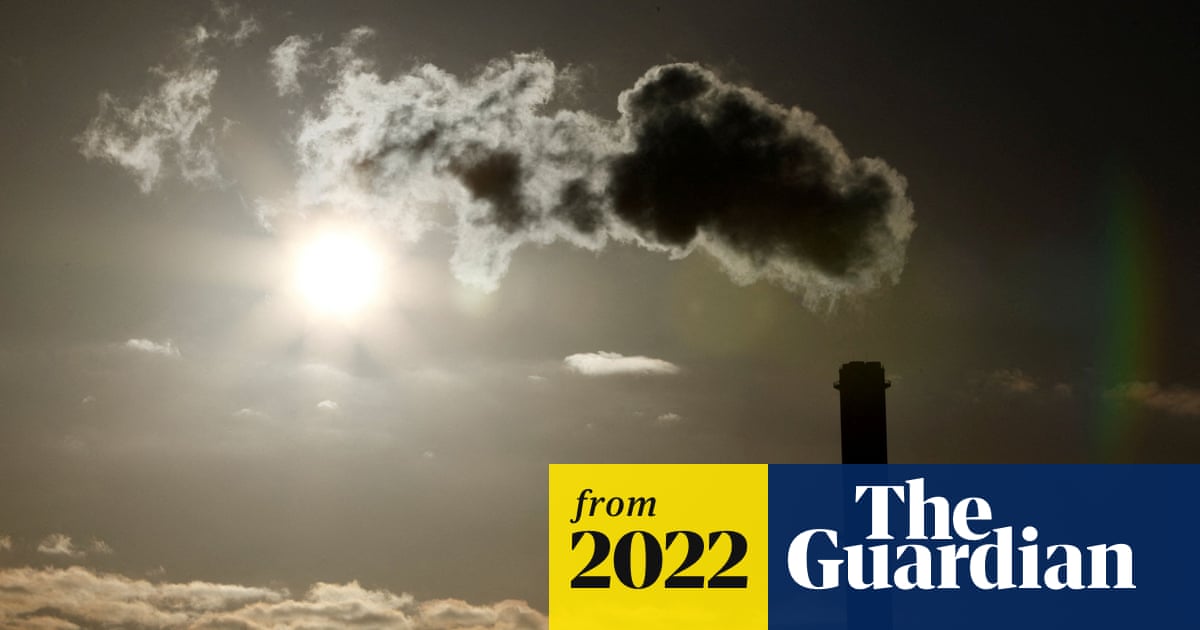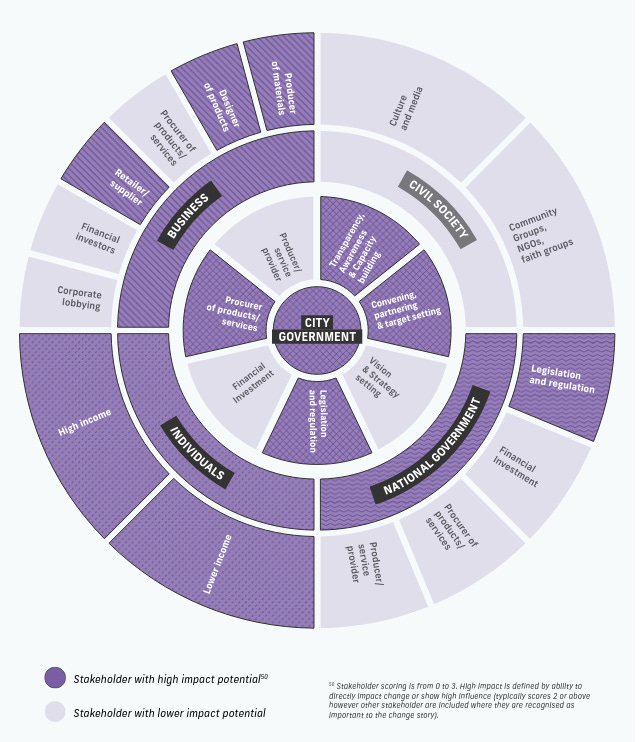What is a
15-minute city?
A 15-minute city is described as a city re-organized into
distinct commutable districts. A district is a geographical region where all necessary amenities are available within 15 minutes of walking, biking or public transit to minimize travel.
Is that it?
No.
'The climate crisis and global COVID-19 pandemic combined to accelerate consideration and implementation of the 15-minute city.
In July 2020, the C40 Cities Climate Leadership Group published a framework for cities to "build back better" using the 15-minute concept.'
— 15-minute city, Wikipedia
The purpose of a 15-minute city is related to the
ability to provide immediate response to one or more crises. This implies the city is equipped with policy and tools that can
monitor and
control specific aspects of
infrastructure and
civil activity.
Where did this idea come from?
15-minute cities — as well as other initiatives — are an implementation satisfying a high-level framework proposed by the United Nations (UN).
This framework is called Agenda 2030.
Agenda 2030 is a plan of action containing
17 Sustainable Development Goals (SDG) and
169 targets. It is a declaration by UN members to radically
transform economic, social and environmental policy under a unified idealized vision.
The goals are broad and long-term, which address supposed existential threats to UN members,
e.g., climate change, pandemics, gender equity, social injustice etc.
It is a vision that prescribes actions to maximize happiness and well-being.
This is a form of
Top Down Management, where decisions are centrally commanded from a small leadership team. There is
no opportunity to question, discuss or provide feedback from decisions or visions delegated from the top.
Utilitarianism is an ethical philosophy that
prescribes actions to maximize happiness and well-being for all affected individuals. The primary goal of this philosophy is to maximize utility, which creates a supplementary objective to quantify, compare and measure happiness or well-being.
Utility is described as:
"That property in any object, whereby it tends to produce benefit, advantage, pleasure, good, or happiness ... [or] to prevent the happening of mischief, pain, evil, or unhappiness to the party whose interest is considered."
— Jeremy Bentham
Under a utilitarian rule,
your individual value is determined by a computed score produced by a scheme or algorithm.
Such scheme could be derived from
models based on:
- Economics.
- Social distributive fairness.
- Environment.
See Chapter 3: Social, Economic, and Ethical Concepts and Methods from Climate Change 2014: Mitigation of Climate Change. Contribution of Working Group III to the Fifth Assessment Report of the Intergovernmental Panel on Climate Change for model specifics.
[Referred hereon as IPCCWG3].
The 15-minute city solution primarily falls under the scope of:
- Goal 9.
Build resilient infrastructure, promote inclusive and sustainable industrialization and foster innovation.
- Goal 11.
Make cities and human settlements inclusive, safe, resilient and sustainable.
15-minute cities can also satisfy secondary goals through policy.
For example:
- Goal 6.
Ensure availability and sustainable management of water and sanitation for all.
- Goal 10.
Reduce inequality within and among countries.
- Goal 12.
Ensure sustainable consumption and production patterns.
IPCCWG3 provides a high level
Summary for Policymakers and a
Technical Summary containing aggregate data and models — subsequent chapters provide further detail. In relation to
Goals 9/11, section
SPM.4.2.5 provides policy rationale based on climate crisis risks, which a 15-minute city would satisfy.
SPM.4.2.5 — Human settlements, infrastructure and spatial planning:
- Urbanization is a global trend and is associated with increases in income, and higher urban incomes are correlated with higher consumption of energy and GHG emissions.
- The next two decades present a window of opportunity for mitigation in urban areas, as a large portion of the world's urban areas will be developed during this period.
- Mitigation options in urban areas vary by urbanization trajectories and are expected to be most effective when policy instruments are bundled.
- The largest mitigation opportunities with respect to human settlements are in rapidly urbanizing areas where urban form and infrastructure are not locked in, but where there are often limited governance, technical, financial, and institutional capacities.
- Thousands of cities are undertaking climate action plans, but their aggregate impact on urban emissions is uncertain.
- Successful implementation of urban-scale climate change mitigation strategies can provide co-benefits.
There are various initiatives being evaluated to satisfy these concerns.
One such initiative is the
2030 District, which establishes energy, water and emission reduction targets for participant member cities.
For example, a new building in a 2030 District shall:
- Reduce energy use by 70% below national average.
- Reduce water use by 50% below current district average.
- Reduce CO2 emission by 50% below current district average.
Existing buildings and infrastructure have similar targets.
"A smart city is a technologically modern urban area that uses different types of electronic methods and sensors to collect specific data.
Information gained from that data is used to manage assets, resources and services efficiently; in return, that data is used to improve operations across the city.
This includes data collected from citizens, devices, buildings and assets that is processed and analyzed to monitor and manage traffic and transportation systems, power plants, utilities, water supply networks, waste, criminal investigations, information systems, schools, libraries, hospitals, and other community services."
— Smart city, Wikipedia
A
SMART city focuses on digital
monitoring and
control of:
- Energy production and distribution.
- Transportation and traffic.
- Buildings, utilities and amenities.
- Environmental impact.
- Productive human activity.
A
series of SMART cities already exist with varying levels of technological implementation. Under Agenda 2030, the success of these methods, in relation to goals and targets, are assessed for feasibility of future endeavours.
The
15-minute city was proposed by
Carlos Moreno at the COP21 conference in 2015.
It has four principles:
- Proximity.
Things must be close.
- Diversity.
Land uses must be mixed to provide a wide variety of amenities.
- Density.
Must be enough people to support a diversity of businesses in a compact land area.
- Ubiquity.
Must be so common they are affordable and available to anyone who wants to live in one.
According to some
studies, proposed topological designs would be fractal with well defined and tuned network parameters.
Sounds great! What's wrong with it?
Utilitarianism is
not the only philosophical idea employed by UN decision making.
The UN claims that irreversible climate change will induce food and resource shortages for an exponentially growing population.
This idea originates from
Malthusianism, which asserts that since population growth is exponential and other resources are linear, eventually a reduction in the standard of living reaches a critical point causing populations to die off.
This justifies the need for:
- Preventative population control.
Reduce fertility rates, e.g., celibacy, chastity, contraception, infanticide, abortion.
- Positive population control.
Any circumstance that shortens the human life span.
Neo-Malthusianism is closer to the UN's stated objectives, which advocates for human population planing to ensure resource and environmental integrity.
In IPCCWG3 Chapter 3 under
Values and wellbeing,
3.4.7 Valuing population provides the rationale for scoring the utility of human populations.
"Average utilitarianism gives no value to increasing numbers of people. The implicit or explicit goal of a great deal of policy-making is to promote per capita wellbeing (Hardin, 1968).
This is to adopt average utilitarianism. This goal tends to favour anti-natalist policies, aimed at limiting population. It would strongly favour population control as a means of mitigating climate change, and it would not take a collapse of population to be, in itself, a bad thing."
— 3.4.7 Valuing population, IPCCWG3
This is similar to the claim Bill Gates made during a TED talk regarding
limiting population growth using:
- Vaccines.
- Healthcare.
- Reproductive services.
"First, we've got population," he said during the talk organized by TED, a non-profit organization devoted to spreading ideas. "The world today has 6.8 billion people. That's headed up to about nine billion. Now, if we do a really great job on new vaccines, health care, reproductive health services, we could lower that by, perhaps, 10 or 15 percent. But there, we see an increase of about 1.3."
— Bill Gates, Reuters Fact Check
During the talk, he also stated that reducing the economic standard of living, by targeting consumption and demand, is another method of achieving emission targets. This is in line with IPCCWG3
SPM.4.2.5 item 1.
i.e., Shift advanced populations to lower standards of living.
After reviewing Utilitarian and Malthusian "ethical" scoring of human life,
Do you want to live in a 15-minute city designed under UN Agenda 2030?
If you value your life, then the answer should be no, because
your value is not guaranteed to be consistent with the Agenda 2030 calculated value.
If however you are
nihilistic, then 15-minute cities and other initiatives are simply a
means to your end,
"for the greater good."
How is this Agenda being sold if the goal is to "limit" and control the population?
Why should we trust these people?
Who are they and what gives them the authority to dictate Truth?
Make no mistake.
Totalitarianism is here, arriving in a glittery rainbow package
claiming to save humanity from itself by monitoring, controlling and enslaving it.
It has infected our government at every level.
"Though Canada has a relatively small population, it also has a large land mass with most of it located in the northern half of the northern hemisphere. These factors contribute to relatively higher energy and transportation costs.
Climate change is one of the most pressing global challenges humanity faces today. The science is conclusive. It tells us that swift action is needed to reduce greenhouse gases, improve climate resilience and protect our natural environment. "
— Canada and the Sustainable Development Goals, Government of Canada
Canada has a
detailed plan to implement the UN Agenda 2030's goals.
"Local governments can advance progress on sustainable communities (SDG 11) through integrated planning, housing, sustainable transport, inclusive urbanization, waste management and inclusive and green public spaces.
Local governments across Canada are not only implementers of the 2030 Agenda, they are also policy makers who deliver direct programs and services to Canadians."
— Towards Canada's 2030 Agenda National Strategy, Government of Canada
Edmonton is
planning 15-minute cities through
districts and
pilot parks.
Don't forget
Toronto!
Make no mistake.
Totalitarianism is here, arriving in a glittery rainbow package
claiming to save humanity from itself by monitoring, controlling and enslaving it.
It has infected our government at every level.
"Though Canada has a relatively small population, it also has a large land mass with most of it located in the northern half of the northern hemisphere. These factors contribute to relatively higher energy and transportation costs.
Climate change is one of the most pressing global challenges humanity faces today. The science is conclusive. It tells us that swift action is needed to reduce greenhouse gases, improve climate resilience and protect our natural environment. "
— Canada and the Sustainable Development Goals, Government of Canada
Canada has a
detailed plan to implement the UN Agenda 2030's goals.
"Local governments can advance progress on sustainable communities (SDG 11) through integrated planning, housing, sustainable transport, inclusive urbanization, waste management and inclusive and green public spaces.
Local governments across Canada are not only implementers of the 2030 Agenda, they are also policy makers who deliver direct programs and services to Canadians."
— Towards Canada's 2030 Agenda National Strategy, Government of Canada
Edmonton is
planning 15-minute cities through
districts and
pilot parks.
Don't forget
Toronto!
Just remember.
You do not have a choice.
It is happening whether people like it or not.
'Road blocks stopping most motorists from driving through Oxford city centre will divide the city into six "15 minute" neighbourhoods, a county council travel chief has said.
And he insisted the controversial plan would go ahead whether people liked it or not.
People can drive freely around their own neighbourhood and can apply for a permit to drive through the filters, and into other neighbourhoods, for up to 100 days per year. This equates to an average of two days per week.
A maximum of three permits a household will be allowed where there are several adults with cars registered to the address.'
— Traffic filters will divide city into "15 minute" neighbourhoods, Oxford Mail
Take into consideration this agenda with Canada's parallel plans to monitor and control human behaviour through embedded digital social credit systems.




